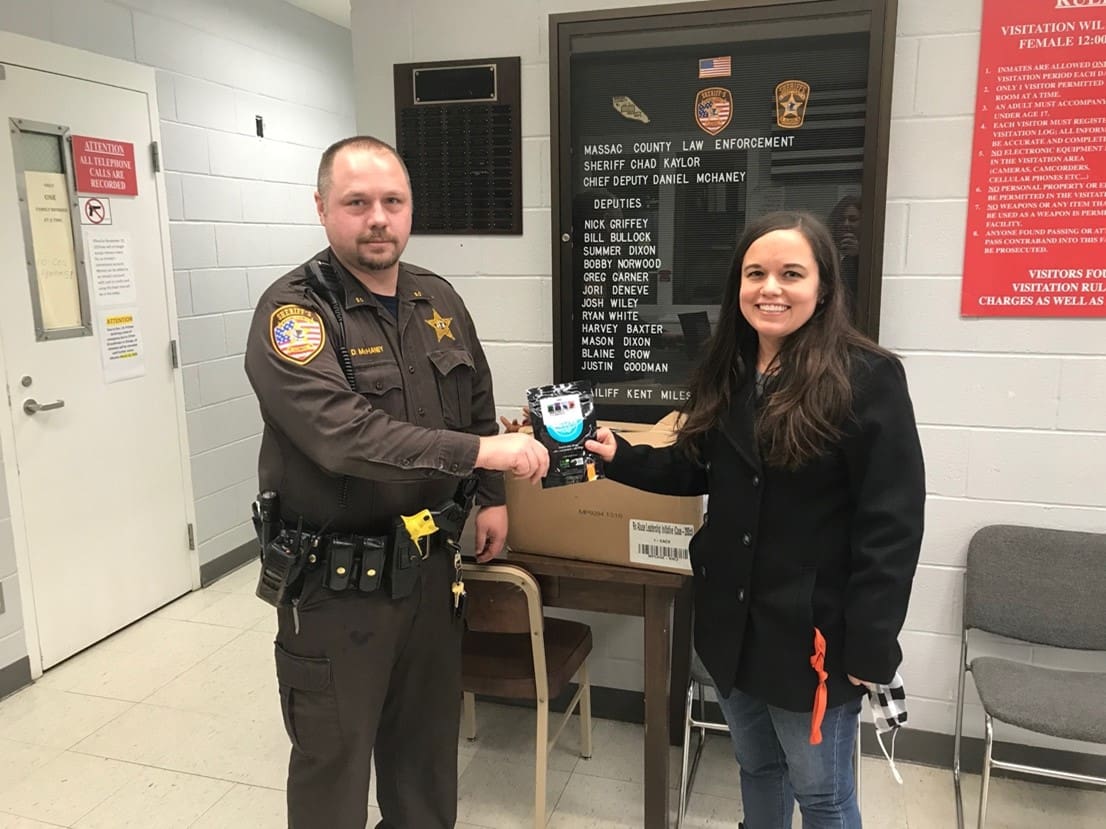
“The Massac County Drug Awareness Coalition (MCDAC) was formed in 2012 as a result of concerns over methamphetamine/other drug use, overdoses and suicides in our community,” said the coalition’s Program Director Holly Windhorst. “MCDAC serves Massac County, Illinois, with a population of about 15,000. Massac County is located at the very southern tip of Illinois on the Ohio River in a rural area.”
“Our coalition was awarded the Drug-Free Communities Grant on the very last day of 2019,” said Windhorst. “We applied several times and had not been funded, so we were ecstatic to finally be awarded the grant. However, only three months into our grant period, COVID-19 hit. It has set us back in many ways, like not being able to meet with our coalition members or Youth Advisory Council in person. We had also just hired a project coordinator in February, and she was unable to meet our coalition members in person for several months.”
“We took advantage of this time to secure a new and bigger office,” said Windhorst. “We also completed CADCA’s National Coalition Academy. We distributed a community survey electronically and had over 200 responses. Every year since 2013, we have provided Red Ribbon Week teacher kits to the elementary schools. We were still able to do that in 2020, and it felt great to participate in something normal! We have also secured some Deterra Drug Deactivation Bags from the Rx Abuse Leadership Initiative (RALI) and have started a program to distribute those for free to Massac County residents. We have also teamed up with two local programs who provide food to families by including flyers with tips for parents about substance misuse in the food bags. Finally, we have a billboard going up soon featuring SAMHSA’s ‘Talk, They Hear You’ campaign.”
“We are most proud of the Deterra Drug Deactivation Bag distribution because of how many volunteers and community partners we’ve had involved in implementing the program,” said Windhorst. “We had several volunteers help with attaching our coalition information to the bags. Many local businesses and organizations were willing to help us distribute the bags by having them available to their patrons. Partners include pharmacies, law enforcement agencies, the health department, hospital clinics, the local substance misuse treatment facility and a food pantry. We also had great media coverage on this program from both the local newspaper and the local radio station. We are happy to provide these bags to the community for free so they can dispose of their old prescription drugs before they can fall into the wrong hands.”
“The flyers in the food bags are providing substance use information to over 400 families each month,” said Windhorst. “The Red Ribbon Week items/messages reached approximately 1,100 elementary school students.”
“My advice would be to focus on what you can do, not what you can’t do,” said Windhorst. “There was a time in the fall when COVID cases in our community were low and we were able to do more activities. They went back up over the holidays, so we had to pull back. It has been difficult, but we are just rolling with the punches and doing what we can.”

